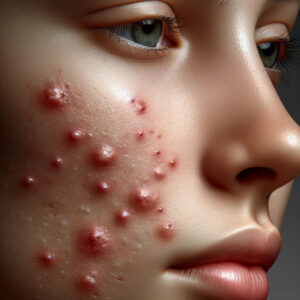What is a Dental Health Therapist? A Look at This Emerging Dental Profession
7 min read
The Complete Guide to Dental Health Therapists: Their Role, Training, and Value
Dental health therapists are a relatively new type of oral health provider that has been gaining popularity and recognition in recent years. As the demand for dental care continues to grow, dental health therapists can help expand access to preventive oral healthcare services. So what exactly is a dental health therapist? What kind of training and education do they receive? And how are they valuable in supporting broader oral health goals? This definitive guide provides a comprehensive overview of the emerging profession of dental health therapy.
What is a Dental Health Therapist?
A dental health therapist is a licensed oral health professional who provides basic preventive and restorative dental care. They work as part of the dental team under the supervision of a dentist. Dental health therapists are specially trained to focus on prevention, assessment, disease management, and minor restorative procedures.
The profession first emerged in New Zealand in the 1920s and has since expanded to many other countries around the world. In the United States, Alaska and Minnesota were the first states to introduce dental health therapists to help address the shortage of dentists and lack of access to oral healthcare, particularly in rural areas.
The scope of practice for dental health therapists varies by state, but typically includes:
- Oral health assessment and diagnosis
- Preventive services like cleaning, fluoride treatments, sealants
- Simple extractions of primary teeth
- Restorations like fillings and temporary crowns
- Pulpotomies on primary teeth
- Simple extractions of permanent teeth
- Emergency palliative care
They serve as a mid-level provider between a dentist and a dental hygienist or assistant, taking on more responsibility and capabilities than the latter roles but working under the supervision and authority of a licensed dentist.
Education and Training Requirements
To become a licensed dental health therapist, candidates must complete an accredited training program that combines classroom instruction and clinical practice.
Most dental therapy education programs take 2 to 3 years to complete and result in an associate or bachelor’s degree. Admission typically requires 1 to 2 years of prerequisites at an accredited college, including courses in sciences like anatomy, physiology, microbiology, and pathology.
The curriculum covers a range of topics in dental sciences, disease prevention, patient assessment, infection control, medical emergencies, legal and ethical issues, public health, and communications. A significant portion of the program – usually around 700-1200 hours – is dedicated to clinical practicum experience treating patients in dental clinics and community settings.
Upon completing their education, graduates must obtain licensure in their state to practice as a dental health therapist. This involves passing clinical licensing examinations. They must also meet ongoing continuing education requirements to maintain their license over time.
Many states require that dental health therapists work under the direct or indirect supervision of a licensed dentist and practice within certain settings like schools or tribal clinics. They cannot work independently without oversight from a dentist.
The Value of Dental Health Therapists
There are several key reasons why dental health therapists are valuable oral health professionals:
1. Improving Access to Care
A major impetus behind establishing the profession was improving access to oral healthcare, especially for underserved populations. Dental health therapists can reach a broader segment of the population by working in public health settings, schools, nursing homes, prisons, and tribal communities.
They can take on more routine procedures and basic care, freeing up dentists to focus on more complex treatments. This distribution of labor and care allows more people to obtain basic preventive oral healthcare and reduces the burden on dentists – leading to improved access overall.
2. Providing Quality Care at a Lower Cost
Dental health therapists are trained to provide routine care like cleanings, fillings, and extractions to a high standard. However, their compensation is typically lower than dentists.
By handling more routine procedures, they can reduce the overhead costs of staffing a dental clinic. This allows dental businesses to offer quality basic care at more affordable prices.
3. Focusing on Prevention and Education
A key part of dental therapy training is an emphasis on prevention, education, and early intervention for oral health issues. Dental therapists develop expertise in preventive techniques, assessing root causes of disease, developing treatment plans, and coaching patients on proper oral hygiene.
With their training targeted to prevention, dental health therapists can help address oral health issues before they escalate and ensure patients understand how to properly care for their teeth.
4. Expanding Capacity of the Dental Team
Adding dental health therapists expands the capabilities and capacities of any dental practice. It allows the dentist to focus on advanced procedures while the therapist handles the routine treatments for more patients.
Their skills in assessment and triage also facilitate more efficient dental workflows. Dentists can devote their time to the procedures that most require their level of skill and training.
5. Serving in Underserved Communities
As mentioned earlier, a major driver for this profession was serving rural areas, prisons, schools, and tribes with inadequate dental care access. Dental health therapists are trained to provide culturally competent care and go where the need is greatest.
Many states require them to spend a certain portion of their time in underserved communities and clinics. Their ability to offer routine quality care in areas with few dentists makes them a key solution for closing healthcare disparity gaps.
Career Outlook for Dental Health Therapists
The profession of dental health therapist is still relatively new in the United States but is gaining traction quickly. Currently around 20 states have adopted training programs and licensure processes for dental therapists. That number is expected to grow as more states recognize the benefits of allowing them to practice.
The first cohort of dental health therapists in Minnesota will complete their training in 2022. Early results have shown promise – they have been able to expand preventive oral health services across many parts of the state. Dental practices have found value in adding them to their teams.
Alaska has allowed tribal dental health therapists to practice since 2004. Studies have shown they are providing safe, competent, and quality care. They have expanded access to an additional 35,000 people who previously did not have regular oral healthcare.
These successes indicate the demand for dental health therapists will continue growing nationally. Career opportunities are expanding beyond the initial drive to serve rural and underserved communities.
More dentists in private and group practices are hiring dental therapists. It is seen as an opportunity to increase patient capacity and revenue. The profession is also gaining support from many dental schools and associations.
Overall the career outlook for dental health therapists looks very strong. They are stepping up to fill an important role in improving preventive oral healthcare access across the country. Their unique training and skills will be valuable on any oral health team.
When to See a Dental Health Therapist
Since dental health therapists focus on prevention and basic care, they are a great option for:
- Routine dental cleanings and checkups
- Fluoride treatments
- Oral health screenings
- Dental sealants
- Fillings on mild decay
- Simple tooth extractions
- Relieving oral pain and infections
- Oral health education and coaching
- Custom fitted mouthguards
They perform the bread and butter of dentistry – cleanings, basic restoration, and disease prevention. You can visit a dental therapist for most of your routine dental needs.
However, you should still see a dentist for more complex procedures like:
- Extensive surgical extractions
- Root canals
- Dental crowns, bridges, dentures
- Orthodontics and braces
- Dental implants
- TMJ disorders
- Periodontal disease treatment
- Wisdom tooth removal
- Sedation dentistry
- Cosmetic dentistry
Dental health therapists also cannot diagnose conditions or work independently without dentist supervision. You’ll need to visit a dentist first who can then refer you to the therapist for appropriate basic care.
But for most routine dental needs, you can certainly visit a dental health therapist for quality care at lower cost. Their skills in prevention and education will also give you the tools to better care for your teeth long-term.
Conclusion
Dental health therapists are an emerging profession that play an important role in expanding access to oral healthcare. They provide routine basic care like cleanings, fillings, and simple extractions – often in underserved communities.
With focused training in prevention, education, assessment, and minor procedures, dental therapists can handle more routine dental work and let dentists focus on advanced care. This improves efficiency and allows more patients to receive quality basic preventive oral health services.
The dental health therapist profession continues to gain support and adoption across the country. As dental practices and clinics integrate dental therapists, it will help broaden care access and capacity. More people can get the dental care they need at a lower cost.
So next time you or a loved one needs a routine dental cleaning or checkup, consider making an appointment with a dental health therapist. They are highly trained to provide quality basic oral healthcare focused on prevention. Over time, establishing care with a dental therapist will help you maintain better lifelong oral health.
Dental Health Therapist – https://oralcare.club/blogs/news/what-is-a-dental-health-therapist-and-should-you-see-one




